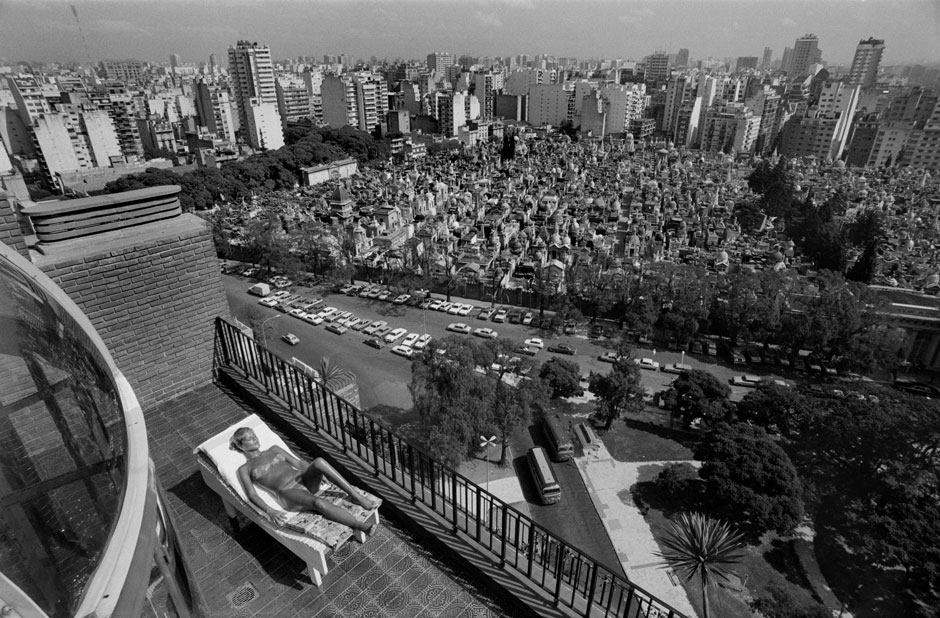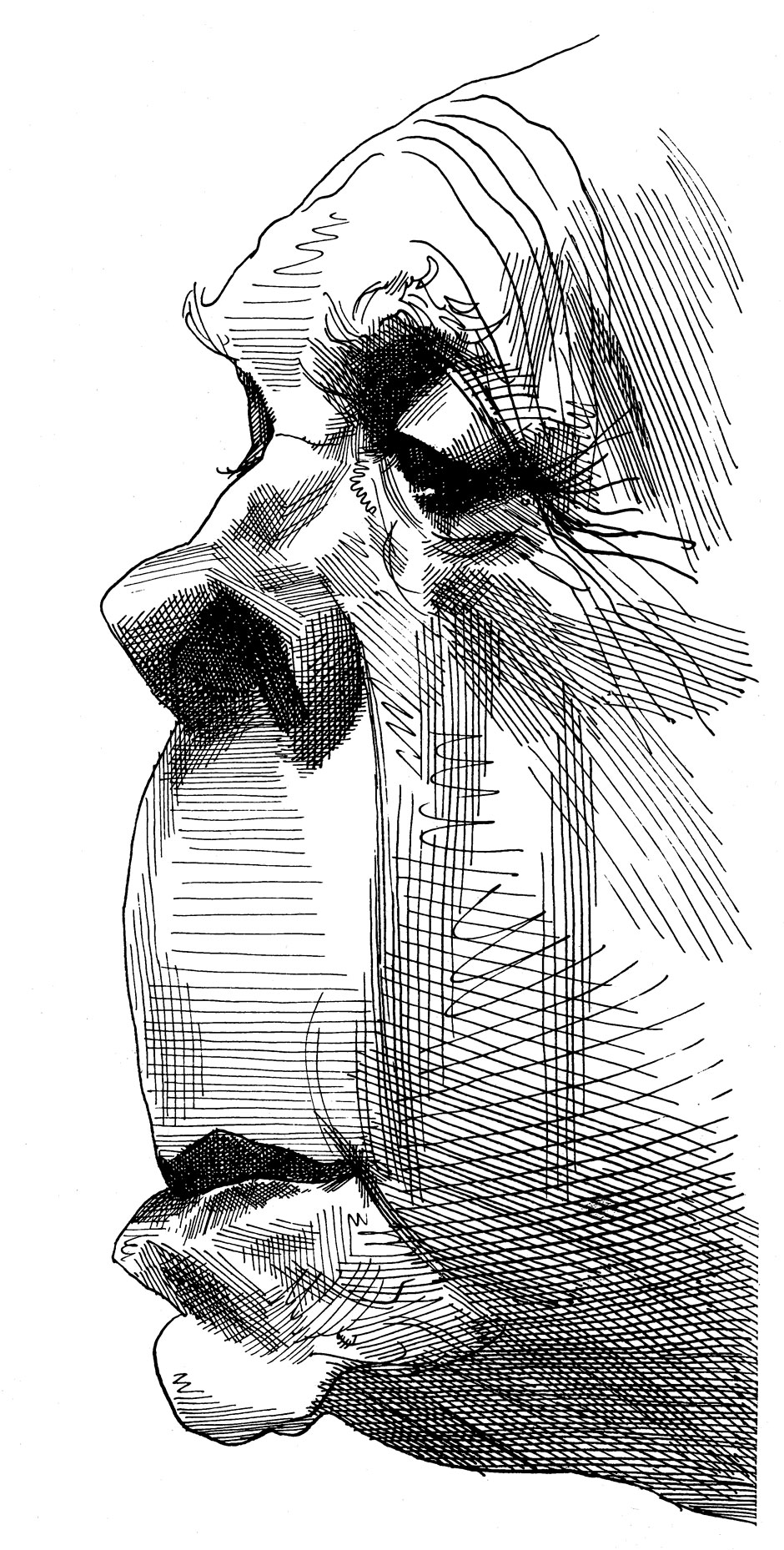The first book I read by the Argentinean novelist Alan Pauls was called El factor Borges—an investigation into the “Borges factor, the particularity, the digital imprint, the molecule that makes Borges Borges.” I’d never heard of Pauls, but the long essay, first published in Buenos Aires in 2000, seduced me with its charm and brilliance, and I remembered it above all for its way of describing Borges’s originality. In Pauls’s account, Borges wanted to be a classic, he wanted the grand esteem of his beloved nineteenth-century writers, like Dumas or Dostoyevsky. But instead of writing fictions of a grand plenitude, like these classic authors, Borges instead performed a side-step: he wrote slim stories that recounted the critical reception of classic works that did not exist. This was the great strategy of lightness that Borges invented, and that has shadowed a certain mutant strain of literature ever since (“Borges is inexhaustible,” wrote Roberto Bolaño, a near contemporary of Pauls).
What do you do, as a novelist, after Borges and his disappearing trick? For Borges’s strategy was not just a local literary effect. As Pauls suggests, it can lead to grandly devastating conclusions:
For Borges the question of the classic is precisely the critical point of a much vaster problem: the problem of literary *value* and of its historicity. Borges maintains that the value of a work is not *intrinsic*, it isn’t contained within it nor in its properties; value is the fruit of an evaluation: it is something given to it, attributed to it, assigned to it. And reading is the principal agent of this labour of value-assignation.
Everything in Pauls’s work is contained in this small sequence. His writing—whose background is always the grotesqueries of recent Argentine politics—is a constant process of evaluations, of readings and misreadings, as his characters try to investigate the true nature of the stories in which they find themselves. Before the essay on Borges, Pauls had published two or three short novels; but it was in the works he published subsequently, in his novel The Past (2003), and then a trilogy of shorter novels, A History of Tears (2007), A History of Hair (2010), and A History of Money (2013), where he perfected his baroque style. In that style, events are always hidden behind the scribble of the characters’ thinking, a haze of suspended investigation into an infinitely receding past—both personal, and also historical: the era of the Junta and the Dirty War. And in A History of Money, now published by Melville House in a translation by Ellie Robins that offers fluidly acrobatic equivalents for Pauls’s ornate syntax, this intertwining of world and personal history is at its most intense (and also least quotable, since one of Pauls’s most sinuous techniques is the ease of his transitions).
The novel—like A History of Tears (2007) and A History of Hair (2010) before it—examines the bourgeois bildungsroman of an unnamed boy in Buenos Aires, centering on his adolescence during the years of the Junta, which began in 1976 with a right-wing coup, and roughly ended in 1983, when the military was forced from power. It was an era that came with its terrible motif: the “disappearances” of thousands of left-wing activists, trade unionists, and any other suspected enemies of the regime. And yet: to be bourgeois was a relatively peaceful occupation. This was the repressed reality that a generation grew up in, and it is the reality that the novel’s narrator inhabits. His parents separated when he was a young child. His father is a gambler and businessman. His mother, who has remarried, is a hypochondriac and spendthrift. While, in this elegant world of tennis clubs and psychiatrists, the boy himself is rebelliously loyal to an idealized Trotskyite Communism. That is the cushioned atmosphere in which the novel takes place, and it begins at a wake for a family friend who has died in a helicopter accident, which occurred as he was on his way to negotiate with striking workers at a factory. The man was said to be carrying a briefcase full of money, but the briefcase has not been recovered, just as it’s not clear if the accident is in fact an assassination. Nothing is certain about the circumstances of this death—nor even about the man himself:
a man of whom it’s not at all clear, today—and the question of what’s meant by *today* can be added to all the other unknowns—whether he was a hero or a traitor, fallen in the line of duty or a victim, a soldier or a double agent, a crook out for blood or a family man determined to avoid spilling any.
From this image of doubt and confusion, the novel cascades in a zigzagging, digressive movement—from the mid-1960s back to the early years of the twentieth century—spiralling through the history of the protagonist’s family, with money as its presiding, capacious theme. Like the other novels in the trilogy, it’s narrated in the third person, but this apparent distance is always on the verge of collapse. These novels follow their protagonist’s thought processes so closely that they sound less like classical tales than a self in the grip of its own narration. And the story A History of Money tells is of contracts, dirty bank notes, his father’s debts, his mother’s real estate deals, his own black market speculations—all of which are exaggerated by the crisis of devaluation dissolving the Argentinean economy, so that the novel is forced to refer, in its forty-year time-span, to five different currencies: pesos moneda nacional, pesos ley 18.188, pesos argentinos, australs, and the peso convertible.
Advertisement
But the reader who expects a novel of sociology will be disappointed, just as the reader who anticipates a family saga will also be confused. In these histories of hair and tears and money, the past is examined obliquely, through the minutely personal associations of each theme. But it’s perhaps with his history of money that Pauls’s indirect technique feels most powerful, precisely because money is everywhere and nowhere; or as Pauls writes,
the money is there, but it can’t be seen, and he soon realizes that this is almost always the case. Maybe disappearing isn’t an unpleasant accident, one of many eventualities eagerly awaiting money, but actually its very logic, a fatal tendency it has. Maybe, he thinks, that’s the main similarity between money and life.
A History of Money, in other words, is a portrait of repression: within a family, or society. Its slippages in time and perspective are small analogues for a wider occlusion. For in this era of the Junta and its secret police, writes Pauls, “everything tends to…the double”—and at the end of the novel he offers his most moving image of this rule’s private effects. Throughout his life, the protagonist has become used to giving his mother little amounts of money, from small change for tips as a child, to larger cash sums to cover debts when he is older. These payments casually punctuate the narrative, until at the novel’s close he goes to his mother’s apartment to clear it out, and finds in every possible location small bundles of bank notes—in the closet, but also “in the drawers of her nightstand, among earplugs and broken pairs of glasses; in the medicine cabinet in the bathroom, cuddling up to bottles of painkillers; in the kitchen, in the cutlery drawer and the pantry and even the oven.” Here, in this apartment, is gathered the past of the novel—for he recognizes it as “his money: everything he’s ever lent her, everything he’s given her to spend, pay, cover, save herself from the emergencies she was drowning in.” In one sense, therefore, he is suddenly rich—with all his lost money restored to him. Except that also, in this era of devaluation, it is worthless.
Like time, all money is eventually lost, and therefore wasted. This is the lesson of Pauls’s novel, which operates according to a double vision which is only resolved here, at its finale: the discrepancy between what is known by the protagonist in the present moment, and what he finally understands later, by which time that knowledge is useless.
There’s a beautiful memoir Pauls published in 2006—between The Past and his trilogy of Histories. It’s called La vida descalzo, and it’s an account of his childhood’s beaches, of the life we live barefoot. But the beach is in fact a pretext for an investigation of the mind’s machinations, of a life that finds its greatest fulfillment not in action but in analyzing the meanings of actions, and the book ends on an image of Pauls as a child, ill, unable to go to the beach, and therefore in bed with the blinds drawn, beginning to read:
He understands that this book is *another* place which incarnates a perfect form of happiness and that, as an author has written whom he will reread 20 years later, when he will no longer be momentarily but *chronically* ill and will be uniquely well placed to do the one thing he *wants* to do, in other words to wear out his eyes in reading, the days of our childhood which we lived the most intensely are those which we thought had passed by without us living them, those which we spent in the company of a book for which later, when it has been completely forgotten, we would be prepared to sacrifice everything.
That author, of course, is Proust—just as the end of A History of Money is based on a structure borrowed from Proust: where the waste of time and money will only be redeemed through literature, through the book that the novel’s protagonist might eventually be able to write: an exercise in retrospective speculations and interpretations.
Advertisement
In a short essay published in 2002, Roberto Bolaño wrote that Pauls was “one of the best living Latin American writers”—and then added, “there are very few of us who know it and can appreciate it.” That may not be true any more in Latin America, but it’s still true in the Anglophonic world, and curious readers can now happily begin here—with A History of Money, this desolate, delighted history of our impermanent valuations.
Alan Pauls’s A History of Money has just been published by Melville House in a translation by Ellie Robbins.




